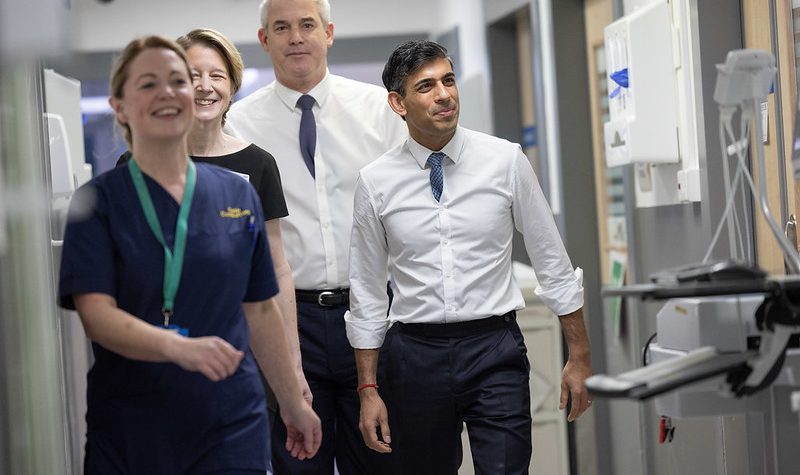As world leaders met in Davos to discuss the many challenges facing the globe in 2023, one event highlighted an issue which is often overlooked in high-profile policy discussions: mental health.
The panel discussion – on which I spoke – focused on the importance of psychological support during times of global crisis. This is a vital and timely topic, especially given the sharp decline of mental health across the world in recent years.
The numbers tell the same story. Gallup’s latest Global Emotions Report (2021), showed that people felt more worried, stressed and sad than at any point in the last 16 years. 28% of respondents also reported experiencing a significant amount of sadness the previous day – the highest percentage ever recorded.
Sadly, this trend is particularly prevalent amongst the young – with one study finding that 44% of 18 to 24-year-olds have mental health scores in the ‘distressed’ or ‘struggling’ range, compared to only 7% for those over 65s. It also found a 3% overall decline in mental well-being reported from the previous year, across all age groups.
It is perhaps no surprise that mental well-being has been sharply declining post-pandemic. The successive challenges of Covid, the war in Ukraine, and widespread economic uncertainty have only added to the burden of millions of people, who often feel unable to access the support they need.
Policymakers have been slow to wake up to the problem, though there are some positive signs of change. We hear that in the UK, just last week, Prime Minister Rishi Sunak pledged a £150 million funding package to upgrade mental health services across the UK. The funds will go into creating new ambulances and medical facilities tailored specifically to the needs of mental health patients.
This is a promising start. However, the strategy of just increasing funding to address the problem risks neglecting some of the deeper factors driving the crisis. Indeed, my argument at the Davos panel was that unless we fix some of the ways we think about and approach mental health, our efforts risk only treating the symptoms of the problem, rather than its root cause.
The simple truth is we are not very good at prioritising mental well-being, either individually or as a society. The huge social stigma, which still surrounds conditions such as anxiety and depression, prevents many sufferers from seeking treatment, and a general attitude of ‘Keep Calm and Carry On’ still pervades.
This kind of classic British stoicism is no bad thing, of course, and in some cases can contribute to mental fortitude. Yet too often we let ideas of ‘resilience’ and ‘character’ prevent us from seeking the help we need – which only compounds our suffering and our communities’ social decline.
Instead, rather than seeing mental health as a problem to be solved or an obstacle to be pushed through, we should recognise it for what it is: a continuum of well-being.
Just as physical health is a spectrum which ranges from healthy to unhealthy, our mental health encompasses a range of states including good mental health, short-term distress, to long-term disorders.
Throughout our lives, we all travel along this continuum many times. And, when necessary, some of us will need a nudge – in the form of therapy or treatment – back onto the healthy end of the scale.
Seeing mental health in such a non-judgemental way has many benefits, not least of which is overcoming the stigma surrounding seeking help when necessary. Our goal should be to reach a stage where there is no more shame in seeking treatment for anxiety or depression than there is for a broken leg.
This framework also empowers individuals by acknowledging that each person is the expert in his or her own experience. Judging where we currently sit on the continuum of well-being is a personal matter, as is knowing when the effort is needed to return us to a healthy equilibrium.
Such a cultural shift may be years in the making, however, there are more immediate things that can be done to help struggling individuals and used every day in the workplace or at home. As a therapist, I have seen first-hand the remarkable impact that self-soothing tools can have – including simple, everyday items like stress balls, a fidget spinner, and sugar-free gum.
These tools can bring a person into the present moment and help practice mindfulness by engaging the senses of touch, taste, sight, etc. They can also turn the mind away from distressing thoughts, feelings and memories, and produce an instant calming effect in times of stress.
Gathering such items into a ‘coping toolbox’ is a strategy which I have long advised my clients and I encourage anyone else who is struggling to do the same.
Social connection within families and communities is another reliable lynchpin of good mental health. Strengthening our relationships is therefore an excellent way to safeguard our well-being. Just as it takes a village to raise a child, it can also take a compassionate network to keep an individual happy, healthy, and supported.
While mental health support was never going to be a central issue at the World Economic Forum, there we were, at Davos, discussing this issue’s urgency. Pa Sinyan, a Managing Partner at Gallup and my co-panellist, rightly called that the global mental health crisis’ silver lining.
Put simply, we now know we cannot afford to continue neglecting mental health, especially as the new year looks set to throw more difficulties and challenges into the mix.
Alysha Tagert is a mental health service professional who specializes in anxiety, depression, grief and loss, trauma, and PTSD.


